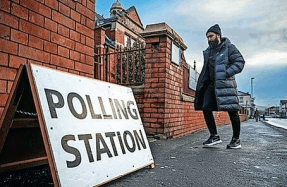Gangsters’ paradise

Under a clear Marbella sky one morning last autumn, a dozen or so locals were eating breakfast at a cafe in front of the offices of the Special Organised Crime Response Unit (Greco). The property is nondescript – an unobtrusive building in a working-class neighbourhood – and only someone with a sharp eye for detail might notice the two security cameras monitoring the front entrance. The cafe’s regulars drank coffee and ate toast, unaware that only 24 hours earlier, in another part of the city, Greco agents had rescued a man from a garage, alive, but with holes drilled through his toes. It was the latest local case of amarre, or kidnapping, to settle a score between criminal gangs.
That afternoon, in Puerto Banús, the wealthiest area of the city, a young British man with ties to organised crime walked out of a Louis Vuitton store and found himself surrounded by a crew of young Maghrebis, “soldiers” from one of the Marseille clans. “They didn’t want anything specific,” he said. “They just stared me down and said: ‘What’s up?’ They were looking for trouble. Things like this have been happening for a while now. It’s getting really dangerous here,” he said, with no apparent sense irony of a criminal complaining about criminality.
On the same day, in New Andalucía, one of the luxury housing developments on the outskirts of the city, a Rolls-Royce sped through an intersection and smashed into an oncoming car. The driver, a young man in a tracksuit and tattoos, got out and inspected the damage, clutching three mobile phones and glaring defiantly at passersby.
It was during Spain’s economic “miracle” and development boom of the 1960s that the Costa del Sol was transformed into the tourist hotspot of southern Europe. First, working-class holidaymakers thronged the public beaches. Then an emerging jet set found their piece of paradise in Marbella. The plan to develop the region succeeded, but success came with its own baggage. “This was the Francoist agreement,” said Antonio Romero, an author and former politician who speaks out against organised crime in the region. “You, the criminals, come here to relax, don’t commit any crimes, and bring your money.” And so, as the authorities turned a blind eye, Marbella became a premier destination for the global criminal elite.
The Costa del Sol is the southern frontier of organised crime in Europe – a stretch of urban sprawl extending from Málaga to Estepona, with Marbella, a city of 147, 000 people, as its capital. According to the Spanish Intelligence Centre for Counter-Terrorism and Organised Crime, there are at least 113 criminal groups
You’re reading a preview, subscribe to read more.
Start your free 30 days



